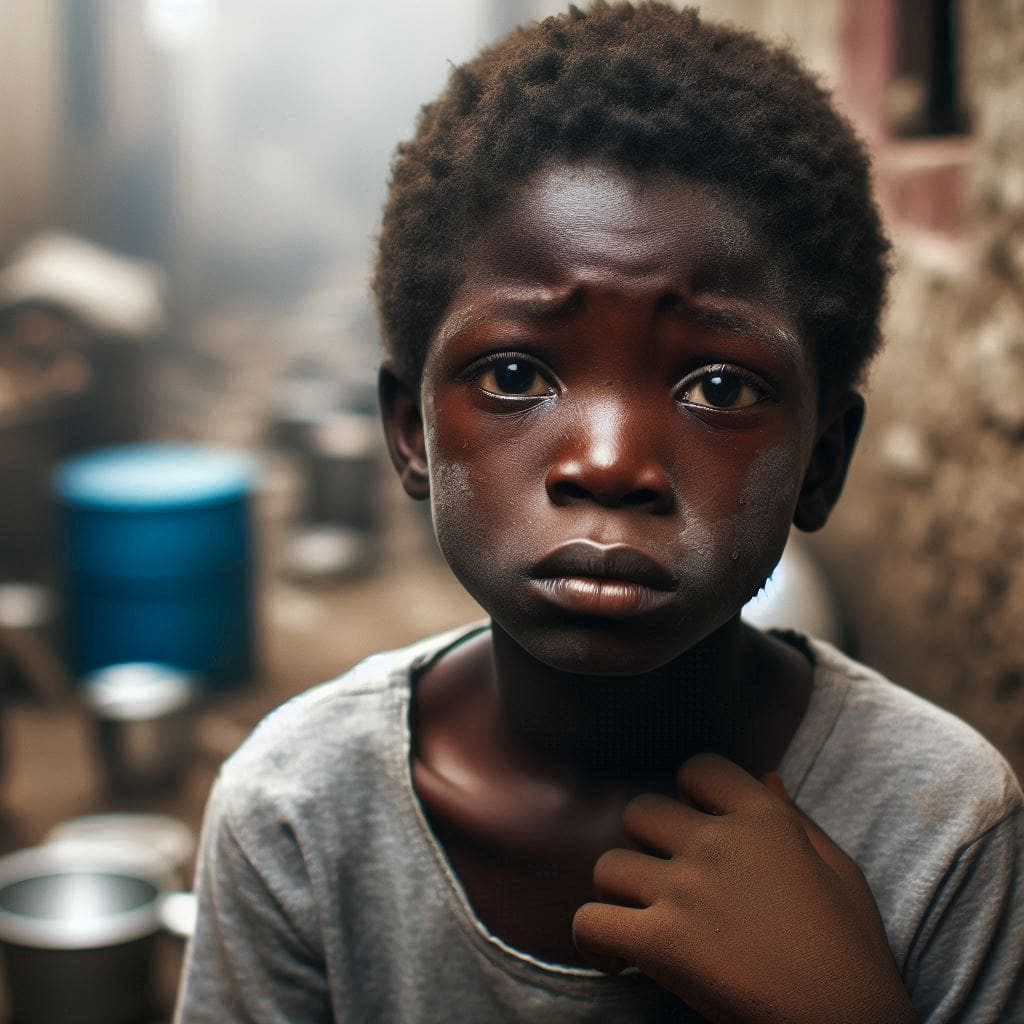
Childhood trauma is a serious issue that can affect a person’s entire life. It happens when a child experiences something very upsetting or harmful. This article will explain the causes and symptoms of childhood trauma, how it affects adulthood, and ways to overcome it.
What is Childhood Trauma?
Childhood trauma is when something very scary or hurtful happens to a child. It can be physical, emotional, or sexual abuse, or it can be watching someone else go through something terrible. These bad experiences can stick with a person for a long time.
When Does Childhood Trauma Start?
Sometimes, trauma happens slowly over time, like growing up in a home with a lot of arguments or not having enough food. Other times, trauma happens suddenly, like a car accident or a natural disaster.
Causes of Childhood Trauma
Several factors can cause childhood trauma, including:
- Abuse: Physical, emotional, or sexual abuse can leave deep scars.
- Neglect: Lack of care, love, and support can make a child feel unimportant and insecure.
- Violence: Witnessing domestic violence or community violence can be very frightening.
- Loss: The death of a loved one or a sudden separation can be traumatic.
- Accidents or Natural Disasters: Serious accidents or events like hurricanes or earthquakes can cause trauma.
Additional Causes of Childhood Trauma
Here are some other things that can cause trauma in children:
- Bullying: Being teased, bullied, or excluded by peers can be very hurtful.
- Medical Trauma: Serious illnesses, surgeries, or painful medical procedures can be scary and upsetting.
- Medical Neglect: Not getting proper medical care can be scary and damaging.
- Poverty and Homelessness: Growing up in poverty or without a stable home can be very stressful.
- Exposure to Substance Abuse: Growing up in a home with substance abuse can be harmful.
- Parental Mental Illness: Having a parent with a mental health condition can be confusing and scary for a child.
- Discrimination: Experiencing prejudice or discrimination based on race, religion, or other factors can be traumatic.
- Displacement or Refugee Experiences: Leaving your home due to war, conflict, or natural disasters can be very stressful for children.
It’s important to remember that even small things can be traumatic for a child, depending on their age and development.
Symptoms of Childhood Trauma
Children who experience trauma may show different symptoms, such as:
- Behavior Changes: Acting out, becoming very quiet, or regressing to younger behaviors (like bed-wetting).
- Emotional Distress: Feeling sad, anxious, or scared often.
- Physical Symptoms: Headaches, stomach aches, or other unexplained illnesses.
- Difficulty Trusting: Finding it hard to trust others or form relationships.
- Trouble in School: Having problems concentrating, learning, or behaving in school.
Additional Symptoms of Childhood Trauma
Here are some more signs that someone might have experienced childhood trauma:
- Nightmares or Flashbacks: Having scary dreams or reliving the traumatic event.
- Avoidance: Trying to stay away from places, people, or things that remind them of the trauma.
- Self-Harm: Hurting oneself as a way to cope with pain.
- Hypervigilance: Being constantly on guard and easily startled.
- Substance Abuse: Using alcohol or drugs to numb the pain.
- Eating Disorders: Eating too much or too little as a way to cope.
- Difficulty Regulating Emotions: Having trouble controlling anger, sadness, or fear.
- Feeling Numb or Empty: Not feeling emotions or feeling disconnected from others.
It’s important to remember that not everyone who has these symptoms has experienced trauma, and not everyone who has experienced trauma will have all of these symptoms. If you’re worried about someone, it’s always a good idea to talk to a mental health professional.
How Childhood Trauma Affects a Child’s Brain
Childhood trauma can have a big impact on a child’s brain. Understanding how trauma affects the brain can help us see why early support is so important.
Effects of Childhood Trauma on the Brain
- Stress Response System
Trauma can over-activate the brain’s stress response system. This system helps us react to danger, but when it is always “on,” it can cause problems. Children who experience trauma may feel stressed or scared even when there is no danger.
- Brain Development
Trauma can affect how a child’s brain develops. The brain grows rapidly during childhood, and trauma can interfere with this growth. Parts of the brain responsible for emotions, memory, and learning can be especially affected.
- Emotional Regulation
Children who experience trauma may find it hard to manage their emotions. This is because trauma affects the part of the brain that helps control emotions. These children may feel anxious, angry, or sad more often than others.
- Memory and Learning
Trauma can impact the brain areas involved in memory and learning. Children who have experienced trauma might have trouble concentrating, remembering things, and learning new information.
- Behavioral Issues
Changes in the brain caused by trauma can lead to behavioral issues. Children might act out, become withdrawn, or have trouble following rules and getting along with others.
Effects of Childhood Trauma in Adulthood

Childhood trauma can continue to affect a person well into adulthood.
Some of the long-term effects include:
- Emotional Issues: Adults may struggle with anxiety, depression, or anger.
- Relationship Problems: Trust issues and difficulty forming healthy relationships are common.
- Self-Esteem: Trauma can lead to low self-worth and self-doubt.
- Physical Health: Chronic stress from trauma can lead to health problems like heart disease or obesity.
- Coping Mechanisms: Some adults might turn to unhealthy habits, such as substance abuse, to cope with their feelings.
Additional Effects of Childhood Trauma on Adulthood
Childhood trauma can also lead to these challenges in adulthood:
- Difficulty Parenting: People who experienced trauma as children might find it hard to be a parent.
- Financial Problems: Struggling with money can be linked to trauma, as it can affect decision-making and job stability.
- Career Challenges: Trauma can make it difficult to hold a job or advance in your career.
- Legal Issues: People who experienced trauma are more likely to have problems with the law.
- Homelessness: Lack of support and coping skills can lead to homelessness.
How to Overcome Childhood Trauma in Adulthood

While overcoming childhood trauma can be challenging, it is possible with the right steps:
- Seek Professional Help: Therapists and counselors can provide support and strategies to heal from trauma.
- Build a Support System: Surround yourself with understanding and supportive friends and family.
- Practice Self-Care: Take time to care for your physical and emotional health through activities like exercise, meditation, and hobbies.
- Educate Yourself: Learn about trauma and its effects to better understand your experiences.
- Express Your Feelings: Talking about your feelings with a trusted person can help you process and heal.
- Set Boundaries: Learn to set healthy boundaries to protect yourself from further harm.
- Be Patient: Healing from trauma takes time. Be kind to yourself and celebrate small progress.
Conclusion
Childhood trauma can have lasting effects, but with the right approach, it is possible to heal and lead a fulfilling life. Understanding the causes, symptoms, and long-term effects can help you take the first steps toward recovery and improving your overall wellbeing.



